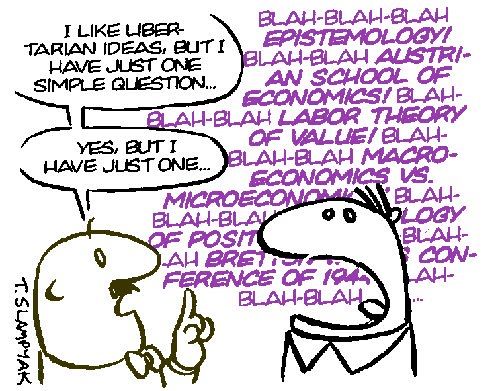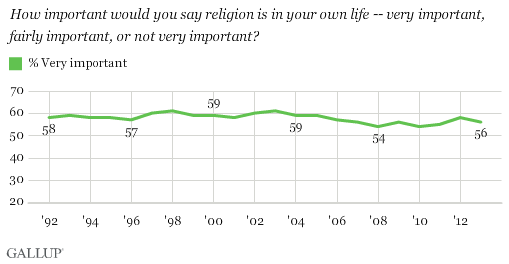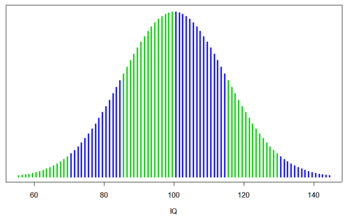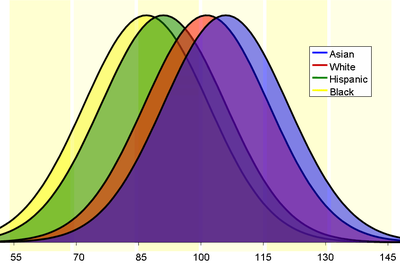Perhaps nothing scares atheists like feelings. They scared to death of
religious experience arguments. Nothing raises their hatred like talking
about religious experiences. Daren Brown is some sort of British stage
magician who has a new stage act
supposedly inducing religious experiences. Atheists waste no time in
arguing that this is proof that such experiences are just accidents that
mean nothing. He states "I examined the Placebo effect and proved just
how powerful fear and faith can be." Of course he assumes that because
there is a psychological process that produces faith that then there's
no object of faith beyond that process that has any real bearing on
life. This is really no different than the one's who claim to stimulate
parts of the brain to induce religoius experiences.
In calling it "placebo" he's trying to set up the suggestion that it's unreal, it's unnecessary, God is the great cosmic sugar pill. Then he totally ignores the nature of real placebo. It's only for medicine, there's no evidence that such suggestive keys can manipulate us apart from expectation. All the things that he does in relation to evoking the psychological process are manipulative means of setting up the association. Yet most religious experience of the sort called "mystical" is not expected. In about half the time it's experienced in childhood, and much of the time mystical experiences contradict the doctrine of the experincer. If it was a real placebo it should confirm expectations. Placebo work by expectation. They don't work by challenging expectations. Calling it a placebo is wrong and improper and it's probably only done to evoke the concept and prepare the atheist to inoculated against emotion by making her suspicious of religious feelings.
He sets up several incidents before the main show (the phony atheist conversion) that are intended to get across the idea that suggestion works powerfully and most such feelings as one associates with the supernatural are also just manipulation. He makes people feel afraid by putting them in a room alone after reading to them some satanic right supposedly form the eleventh century. People are turned on by a sense of dark mysterious and ancient. He gave people a fake drug which is no more than a sugar pill and by getting them to believe in it I got them to make dramatic changes in their lives. Of course he doesn't follow them in their lives or do a longitudinal study to determine if the changes are really transformational (dramatic, positive, and long term). He has no real control and no real way of determining if he's given anyone a real experience. Empirical study has demonstrated that religious experience is real, that's transformational, and that there is a way to determine real experiences from phony ones. No there is no proof direly that it's caused by God but this can be argued successfully by paying attention to what can be proved and using it with logic. It is the M scale that provides us with that means of verification for religious experience and it's been validated by a half dozen studies around the world.
His psychological explanation for the process is typically convoluted and not well throughout. He does an experiment that shows people in private when not watched lie about their mistakes. The idea is tp show that there's a presence in the room no one cheats. If people are given a idea of supernatural presence they act more moral. It is asserted that there are evolutionary reasons why we developed the idea of a supernatural presence. Don't want to be outcast form the tribe so we can reproduce. divine presence would ensure the sense of being cought out. God is made up to make us be moral. In other words like Foucault's take on the Panopticon the prisoners are learning to watch themselves. The problem here is he's convoluted several different reasons in to one.
First of all, if we feel a sense of presence that in itself is reason to assume we feel it. It doesn't have to be the result of needing a moral campus and inviting an invisible God. the illustration itself shows cave men ostracize a guy because he lied. So the fact of how people treated each other would be the reason for moral behavior and the fear of being rejected by the tribe and not being allowed to make would be enforcement enough, why make up an internal watch dog to do the job as well? If one has not felt experiences one doesn't know what they are. why invent a psychological process to evoke them then try to explain them. The fact that one has had such experience itself the reason to believe in the reality of such experiences, then the need to explain it comes out of having the need. The idea of ancient cave men trying to produce a sophisticated psychological technique for evoking some experience they haven't had is ridiculous and if they had it, it has its own reality.If they had it prior to producing the process of evoking it then it is real.
Brown is certain that the experience explained by psychology. He asserts that these kinds of experiences come from big religious rallies with hyper suggestibility but there's no basis for that assumption. He's not using M scale studies to determine what percentage of religious experience is privately induced and percentage comes out of the big hyper rallies. Here's a clue, with half coming in childhood they are not coming form big rallies.
Then he goes through an elaborate production to produce a fake conversion in an atheist woman. He dose this indirectly without mentioning God. He uses several techniques such as tapping his fingers while they talk about her father to make her associate emotions the sound of the tapping with feelings of fatherly love. In several ways he evokes feelings of powerful father figure to bring atheist to believe. Establishes rapport. learns about her father. The woman is unconsciously processing, core religious belief evoked that God has plan for us and pulls strings to help us. No direct mention of God was made the woman made the connection to God herself through feelings of the father figure (tap tap tap). Brown says things that imply a grand plan, talk about things going wrong for a reason. sense of awe and wonder. Talks about the stars and space, evokes being cherished with awe. The woman describes her experience as "all the love in the world had been thrown at me. I pushed it away by not letting it into my life." Now she sees it's so stupid and she sees through it.
He says "I feel douty bound to make sure you understand that the postive stuff you got through this is not religious belief." This is what he tells her latter after they brought back befoer the audiecne. She's already been debriefed. He says explicitly "it certainly didn't come form God." The result of this elaborate dog and pony show is that we are supposed to come away with the grand feeling religion has been totally exposed and deconstructed and unraveled we see close up who fake it is there's no need for it. Of course the Brit media is opporating from the assumption that atheism is the standard, the grounding for society, the status quoe. The Audience is pre slected to reflect this idea. So one's going to challenge it.
It is a dog and pony show, he has no longitudinal study, no double blind, no control, he has no scale to measure the nature, depth, or effect of experience. He has no theory of religious experience to play it off of. That is all very crucial without that he's proved nothing. He can't guarantee that what she experienced is even a religious experience. One clue to that question is she says nothing about undifferentiated unity. she didn't say that she felt an all pervasive presence. She felt there's a plan and a purpose and she's cared for but that doesn't prove that it's the same religious experience that W.T. Stace talked about (see my link above on M scale).
The real problem is without a control there's no way to know if he isn't just evoking the we are given by God to be able to find him. The fact that he's evoking some of them doesn't prove that they are merely a matter of manipulation. There was no guy tapping when I got saved. Any associations that were evoked alone in my living room had to be coincidental or accidental rather than arranged. To say that there's a psychological process that enables to internalize the value of belief in God is hardly a denunciation of the reality of validity of that process. So there is a psychological process and we can manipulate it. I also had a need for a father figure, and guess what, I had a father. Saying that having a psychosocial need disproves the reality of the solution is just foolish.
That's like saying you have proved that love is just a psychological trick becuase when you when you do things to make them think they are loved they respond emotionally. He's giving all the ques that God would give us to guide into a relationship with him, thus they respond becuase it's put in them to respond. The only real test of the validity of such feelings is the long term change and production of positive experiences and behaviors resulting from it. Plenty of studies establish that this is the case with mystical experience. It's not been proved that it is the case with phony evoked experiences.
Essentially there is a psychological process to conversion. it make sense that there would be becuase if God wants us to have a personal relationship with him then there must be affects which would draw us into a psychological state that is conducive to that relationship. Those affects are not hard to find because we all know about them, the they things that motivate us and turn us on. So he merely found them and induced them in cleaver ways.
In calling it "placebo" he's trying to set up the suggestion that it's unreal, it's unnecessary, God is the great cosmic sugar pill. Then he totally ignores the nature of real placebo. It's only for medicine, there's no evidence that such suggestive keys can manipulate us apart from expectation. All the things that he does in relation to evoking the psychological process are manipulative means of setting up the association. Yet most religious experience of the sort called "mystical" is not expected. In about half the time it's experienced in childhood, and much of the time mystical experiences contradict the doctrine of the experincer. If it was a real placebo it should confirm expectations. Placebo work by expectation. They don't work by challenging expectations. Calling it a placebo is wrong and improper and it's probably only done to evoke the concept and prepare the atheist to inoculated against emotion by making her suspicious of religious feelings.
He sets up several incidents before the main show (the phony atheist conversion) that are intended to get across the idea that suggestion works powerfully and most such feelings as one associates with the supernatural are also just manipulation. He makes people feel afraid by putting them in a room alone after reading to them some satanic right supposedly form the eleventh century. People are turned on by a sense of dark mysterious and ancient. He gave people a fake drug which is no more than a sugar pill and by getting them to believe in it I got them to make dramatic changes in their lives. Of course he doesn't follow them in their lives or do a longitudinal study to determine if the changes are really transformational (dramatic, positive, and long term). He has no real control and no real way of determining if he's given anyone a real experience. Empirical study has demonstrated that religious experience is real, that's transformational, and that there is a way to determine real experiences from phony ones. No there is no proof direly that it's caused by God but this can be argued successfully by paying attention to what can be proved and using it with logic. It is the M scale that provides us with that means of verification for religious experience and it's been validated by a half dozen studies around the world.
His psychological explanation for the process is typically convoluted and not well throughout. He does an experiment that shows people in private when not watched lie about their mistakes. The idea is tp show that there's a presence in the room no one cheats. If people are given a idea of supernatural presence they act more moral. It is asserted that there are evolutionary reasons why we developed the idea of a supernatural presence. Don't want to be outcast form the tribe so we can reproduce. divine presence would ensure the sense of being cought out. God is made up to make us be moral. In other words like Foucault's take on the Panopticon the prisoners are learning to watch themselves. The problem here is he's convoluted several different reasons in to one.
First of all, if we feel a sense of presence that in itself is reason to assume we feel it. It doesn't have to be the result of needing a moral campus and inviting an invisible God. the illustration itself shows cave men ostracize a guy because he lied. So the fact of how people treated each other would be the reason for moral behavior and the fear of being rejected by the tribe and not being allowed to make would be enforcement enough, why make up an internal watch dog to do the job as well? If one has not felt experiences one doesn't know what they are. why invent a psychological process to evoke them then try to explain them. The fact that one has had such experience itself the reason to believe in the reality of such experiences, then the need to explain it comes out of having the need. The idea of ancient cave men trying to produce a sophisticated psychological technique for evoking some experience they haven't had is ridiculous and if they had it, it has its own reality.If they had it prior to producing the process of evoking it then it is real.
Brown is certain that the experience explained by psychology. He asserts that these kinds of experiences come from big religious rallies with hyper suggestibility but there's no basis for that assumption. He's not using M scale studies to determine what percentage of religious experience is privately induced and percentage comes out of the big hyper rallies. Here's a clue, with half coming in childhood they are not coming form big rallies.
Then he goes through an elaborate production to produce a fake conversion in an atheist woman. He dose this indirectly without mentioning God. He uses several techniques such as tapping his fingers while they talk about her father to make her associate emotions the sound of the tapping with feelings of fatherly love. In several ways he evokes feelings of powerful father figure to bring atheist to believe. Establishes rapport. learns about her father. The woman is unconsciously processing, core religious belief evoked that God has plan for us and pulls strings to help us. No direct mention of God was made the woman made the connection to God herself through feelings of the father figure (tap tap tap). Brown says things that imply a grand plan, talk about things going wrong for a reason. sense of awe and wonder. Talks about the stars and space, evokes being cherished with awe. The woman describes her experience as "all the love in the world had been thrown at me. I pushed it away by not letting it into my life." Now she sees it's so stupid and she sees through it.
He says "I feel douty bound to make sure you understand that the postive stuff you got through this is not religious belief." This is what he tells her latter after they brought back befoer the audiecne. She's already been debriefed. He says explicitly "it certainly didn't come form God." The result of this elaborate dog and pony show is that we are supposed to come away with the grand feeling religion has been totally exposed and deconstructed and unraveled we see close up who fake it is there's no need for it. Of course the Brit media is opporating from the assumption that atheism is the standard, the grounding for society, the status quoe. The Audience is pre slected to reflect this idea. So one's going to challenge it.
It is a dog and pony show, he has no longitudinal study, no double blind, no control, he has no scale to measure the nature, depth, or effect of experience. He has no theory of religious experience to play it off of. That is all very crucial without that he's proved nothing. He can't guarantee that what she experienced is even a religious experience. One clue to that question is she says nothing about undifferentiated unity. she didn't say that she felt an all pervasive presence. She felt there's a plan and a purpose and she's cared for but that doesn't prove that it's the same religious experience that W.T. Stace talked about (see my link above on M scale).
The real problem is without a control there's no way to know if he isn't just evoking the we are given by God to be able to find him. The fact that he's evoking some of them doesn't prove that they are merely a matter of manipulation. There was no guy tapping when I got saved. Any associations that were evoked alone in my living room had to be coincidental or accidental rather than arranged. To say that there's a psychological process that enables to internalize the value of belief in God is hardly a denunciation of the reality of validity of that process. So there is a psychological process and we can manipulate it. I also had a need for a father figure, and guess what, I had a father. Saying that having a psychosocial need disproves the reality of the solution is just foolish.
That's like saying you have proved that love is just a psychological trick becuase when you when you do things to make them think they are loved they respond emotionally. He's giving all the ques that God would give us to guide into a relationship with him, thus they respond becuase it's put in them to respond. The only real test of the validity of such feelings is the long term change and production of positive experiences and behaviors resulting from it. Plenty of studies establish that this is the case with mystical experience. It's not been proved that it is the case with phony evoked experiences.
Essentially there is a psychological process to conversion. it make sense that there would be becuase if God wants us to have a personal relationship with him then there must be affects which would draw us into a psychological state that is conducive to that relationship. Those affects are not hard to find because we all know about them, the they things that motivate us and turn us on. So he merely found them and induced them in cleaver ways.







